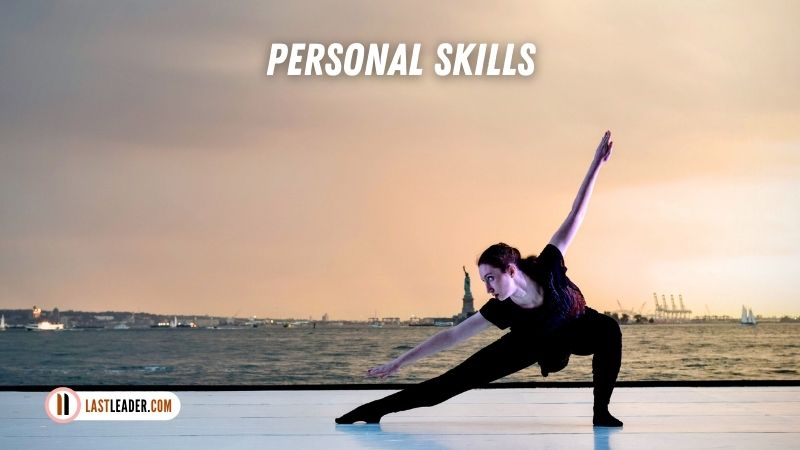Weaknesses Job Interview: In regards to interview queries, the classic “What would be your biggest strengths?” It is a softball. It is an invitation to shine a spotlight with the abilities and experiences which make you a fantastic match for the occupation. The curveball comes when you are asked about flaws at a job interview.
That company question, “Tell me about your biggest flaws,” trips up many job applicants. It is no wonder: how can you tell them about your flaws without sounding as if you would be hopeless at work?
It is catchy, but it may be accomplished.
How to approach
In the end, you wish to go over your flaws in a work interview so that you get ground instead of losing it. Bear in mind what hiring managers need to understand is how you handle hardship at work.
To begin, take into consideration the constraints that have challenged you in the office. It is a fantastic practice to create a record of your known flaws. One method to assemble material is from previous performance tests and notes from managers about areas for improvement.
You also need to be sure to thoroughly examine the job posting before the interview so that you don’t identify something for a lack that is indispensable to the job. Reread the project description so that you know what characteristics and skills are vital to the functioning of the project. Those soft or hard skills should not be in your weaknesses job interview listing.
Best way to answer – What are your Weaknesses?
Although this question might look like it’s about your biggest weakness, it’s even more about your consciousness for an employee.
You always think, “How I answer this question is to discuss what you are likely to appear as matters you might want to educate me to develop me.”
The best way to answer the “greatest weakness” question would be to be truthful about your “field of opportunity” at the office.
The shocking answers to this query are the ones that reveal the candidate knows the chances for advancement and express how they’ve taken actionable actions to work on these regions. Good employees are individuals that are continuously attempting to improve, hence revealing the way you’re presently growing on your profession should impress a hiring manager, not frighten them off.
As you can see in the three flaws job interview illustrations above, being honest and open about attributes or abilities you’re working on is the ideal approach to answering this query. Like at the three flaws job interview cases, you wish to be sure to close out your response by expressing how you’ve begun to improve with this “weakness.”
If not appropriately answered, this query might hurt a candidate and also become interview neglect. Take a Look at the two situations where your Reply to this”greatest weakness” question may frighten a hiring supervisor:
- In case you don’t provide methods by which you’re working to enhance, you’re leaving the interviewer using a possibly regarding monitoring about you as a worker.
- When the attribute you explain as a “weakness” is the essential attribute or ability for someone who holds this function to get. Ensure that you get a solid comprehension of the work description and steer clear records of any of the necessary or desirable traits and techniques.
Examples of Weaknesses Job Interview
Do one or more of these weaknesses ring a bell? Be aware that these are not great options for your response if the job demands particular skills in these regions.
- Inexperience with specific software or a non-essential skill
- The tendency to take on too much responsibility
- Nervousness during a public speaking
- Hesitancy about delegating tasks
- Discomfort while taking risks
- Impatience when working with teams
- Self-consciousness about writing skills
Things to avoid on your response
Your initial response is to state, “that I don’t have any flaws, and nothing can keep me out of doing a fantastic job.” However, no one’s ideal, and hiring supervisors understand that. Should you react to this query with a passionate refusal, the interviewer will most likely write you off as somebody with too little consciousness or overconfident or unable to comprehend and learn from their mistakes.
Hiring supervisors are also prudent to answers that try to frame a favorable trait as flaws in a job interview. Interviewers are to such stock replies, but you may use them by incorporating details applicable to this job to show you have put actual thought to it.
I have learned to understand when I am beginning to try it, like spending a bit too long on more substantial jobs like quarterly reports, and I am usually able to keep myself in check.
Set Your Weaknesses in a favorable light
When you’ve recognized your weakness, craft an answer to set it in the most significant positive light. How can you do so? Here are three tips:
- Prove how you understand where you have to enhance and take action to strengthen yourself.
- What are the ways that you can enhance to tackle your weakness?
- Take a course or get coaching.
- Discover programs, like programs, to monitor your time, calendar fractures, or collaborate smoothly.
- Utilize a mentor.
- Participate in volunteer work to construct a skill.
- Combine professional teams or business associations.
Also Read: Killer Interview Strategies and Techniques
Sample answers to the query – What are your Weaknesses
How to Tell Your Weaknesses in a Job Interview?
You get a unique chance as you approach this query about flaws in a job interview. How so? You can demonstrate to the hiring manager you understand the areas you will need to update yourself and are taking measures to tackle them. Here’s a sample response that makes this strategy:
I discovered how to arrange my times and strike a mission in manageable chunks. I put together a strategy after I receive a new task, and I often conquer my deadlines.
Another example illustrates how to utilize the prerequisites of the project to push your response. Let’s say you are not an influential writer, and you are asking for employment as a graphic designer. The work description highlights design, production layout, and particular applications expertise but does not mention anything regarding content creation.
I have been about the creative side of things and have not had much experience with content creation, so I would say that is a weakness for me. But, I am a fast learner, and that I think I could improve my writing abilities if I needed to for my occupation.
Alternatively, if you are asking for a position as a financial adviser and a few of the essentials of the job would be to provide regular reports to upper management, you won’t wish to highlight the best way to the hiring supervisor to battle making presentations.
Why is the weakness question important?
It can be challenging to reply to the “Weaknesses job interview”. Nevertheless, it is not only an obstacle to a pitfall to avoid. It is a chance to demonstrate to the hiring supervisor how it is possible to learn from constructive criticism and how you are eager to make adjustments when you confront challenges and the way you’re able to find yourself up and dust off yourself when you neglect. Any employer would rely on those items as advantages.
The”what’s the biggest weakness” query pops up throughout all interviews in 1 kind or another. While it may look like the hardest query (because who would like to speak about what they’re weak at while they’re attempting to make a fantastic impression?), It is not as complicated as you think.
You need to use these three flaws job interview illustrations to help you find the best means for you to answer this query accurately.
These three weaknesses job interview illustrations all contain those critical components.
This is an excellent strength unless it is not the thing I am supposed to be operating on. This can become problematic when I am not working on something that you need me to act on since that concentrate will mean I’ll do it if I should not.
I have been combatting that by maintaining a list of jobs delegated to me broken into a daily and weekly basis. I’ll check in with my supervisor to ensure I was working on the ideal roles and led in the perfect direction.”
You’re talking your strengths, however, at precisely the same time being honest and open about the way these strengths are occasional flaws. This response points to an advantage, ensuring the hiring supervisor recognized them; however, additionally is faithful in answering the question they asked you. Like all replies for this query, this reaction finishes up by saying how you’re working with this weakness.
I frequently have challenges making certain I handle my time professionally. Since implementing these strategies, I haven’t missed a scheduled appointment, and I’ve made five additional articles each week.”
When the job doesn’t involve exceptional organization and time management abilities, then this is a superb solution for somebody who struggles with those traits. By finishing the response by explaining everything you’ve been doing to increase your business and time management abilities, you reveal the hiring manager that your capacity to grow inside your office.
In the workplace, I can be shy about giving constructive feedback to my superiors and also colleagues. This is because I am always afraid of hurting the feeling of others. That is having been said; my very last team was extremely devoted to responding to one another.
We’d have biweekly meetings where we discuss the comments we have for one another. Through these steps and my growing maturity for a worker in this market, I’ve discovered that feedback is not offensive, but useful to construct my group as a whole. I’ve understood that my compassion can be exceedingly helpful in providing thoughtful, helpful feedback.
This “greatest weakness” job interview illustration offers an honest response about something you were not comfortable, or mentally mature enough, to perform in the office. The hiring supervisor will probably be glad that you supplied a thoughtful, genuine response, and will be amazed that you’ve developed to conquer this anxiety at work. This narrative allows your aide to realize your expansion from a shy worker to someone who provides useful comments in an empathetic way.
Also Read: Importance of Body Language in an Interview
If you have been to a job interview, then there is a fantastic chance you have been asked, ‘What is your biggest weakness?’
However, it is worth it to provide a more fair and accurate response.
Nobody would like to manage somebody who believes they are perfect; therefore, it is always much better to admit to flaws instead of pretending you do not have some.
Here we look at the way to get an open-minded, real talk about five common flaws; and how to prove you are working on these in a manner that will impress your interviewer.
Fear of public speaking
I have not had good exposure to talking before significant collections, but that is something I am dedicated to advancing over time.’
You can then provide examples of how you have already begun working to overcome this weakness, like volunteering to provide training or talk at smaller group parties to construct confidence.
Hiring managers will also be impressed with things you might do out of work to enhance a weakness, like reading specialist or personal growth books, listening to podcasts, or even public speaking; linking a team to develop public speaking skills.
Lack confidence
Frequently introverts that are also rather shy lack assurance in a meeting and if they begin in a brand new role.
You may then continue to spell out how this may form how that you approach a new function by stating something such as ‘I am an introvert, meaning that I might be somewhat more reserved when I begin in a new place. I might not donate as much in staff meetings initially since I tend to sit back and listen until I am familiar with the group and the topic matter.
I could be much self-critical.
That is one way to explain ‘perfectionist’ trends more. Sometimes this means I will get stuck in the facts and may also get frustrated when working together with other people who do not possess precisely the identical set of criteria.
It is then important to give proof of what you are doing to overcome this weakness in your existing role, like taking a step back to take a look at the huge image and recognizing that everybody has different weaknesses and strengths they bring about a group.
That I have a tough time saying NO
Occasionally we overload ourselves by saying yes to each opportunity or ask for assistance, from a need to be a team participant or just because we are enthusiastic about our job. However, this “people-pleaser” mindset can result in burnout if you don’t set boundaries.
If that describes you, discuss how you are conscious of the need to place boundaries and everything you are realistically capable of. After that, you can also explain how you have taken steps to make sure that you’re handling or placing more realistic expectations for yourself, your co-workers, along with your supervisor.
More senior applicants may also mention how they’ve worked on their assigning skills to handle their workload whilst also growing more junior employees.
I will fight to ask for help
Whether it comes in pride or an inability to give up control, a number of people may find it tough to acknowledge when we require a hand on the job. Being aware of the is one measure, another is imagining it in a meeting.
You might offer a good illustration of where you went down the wrong path since you didn’t request assistance or invested too long on something for fear of seeming ignorant.
You can then describe what you learned from this scenario and how you implemented these learnings since that moment.
Demonstrating that you are conscious of your main weakness and working to conquer it reveals power, self-awareness, and adulthood, all favorable characteristics employers are searching for. Ensuring you’re ready for this query can help you make a fantastic impression at your next interview.






